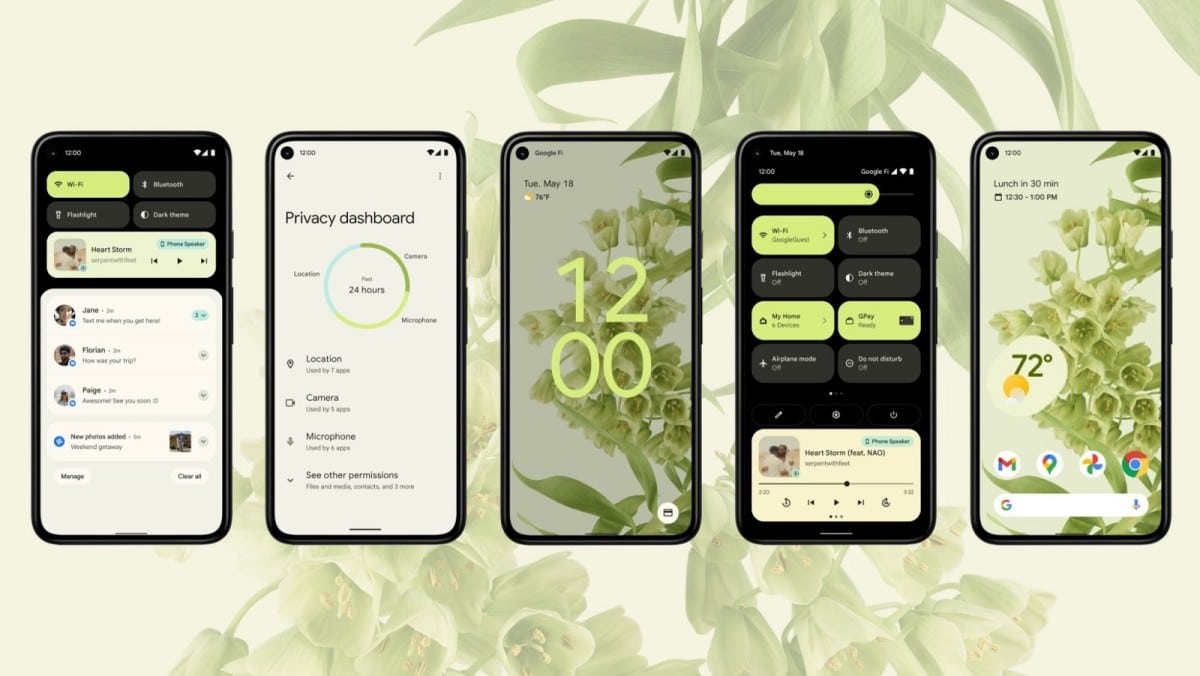
It doesn't seem like that long, but it's been seven years since Google Introduced Material Design. At that time, the company that develops the most used mobile operating system in the world presented a new interface and way of using Android that broke with v4.x, and now they are going to make a similar move. The version that will introduce it will be Android 12, and it is worth mentioning that along the way he dropped the name of the candy which acted as a surname.
Google has presented Android 12 less than 24 hours ago on Google I / O. As usual, and this is something that other companies like Apple also do with their iOS, they have launched the first beta months before the launch of the stable version, partly because of the "hype", so that users want to try the new system, and in a more important part so that developers have time to test their apps with the next version of the operating system, as well as being able to work on design changes, widgets and others, although Google has advanced that part of these transitions will be automatic.
Android 12 improves performance, according to Google
Among the novelties that arrive with Android 12, Google highlights:
- Material you. Google has chosen this name for the new interface, the most important renovation of Android to date.
- Improved performance, both for the system and for applications. Now it requires less CPU time, 22% less, so everything will go faster.
- Greater autonomy.
- Performance Class, a set of capabilities that go beyond the requirements of Android. They do this with the Android ecosystem in mind.
- Privacy improvements, with functions such as app hibernation, permissions to communicate with nearby devices (Bluetooth) or greater control over location.
From the above, I think the most interesting thing is the design change, because it is the first thing we see, what is obvious. They have made a profound change that encompasses colors and shapes, light and movement. Material You will be available in the apps when they are updated, so the developers will not have to do anything, they say. The new design is more rounded, which somewhat follows the trend that other developers like Mozilla also follow with their Firefox (89).
New image, widgets and effects
The widgets, something so popular that even Apple gave up and already allows them on the home screen of its iOS (not on its iPadOS), they have been modified to be more useful and visually attractive. Now they include checkboxes, switches and other customization systems so that we can leave the interface as we like.
What was not available until Android 12 is the stretch overscroll, what it is "a new system-wide scrolling effect to let users know that they have scrolled past the end of the content available in their user interface. The stretch effect provides a natural vertical and horizontal scrolling stop indicator that is common to all apps, and is enabled by default for scrolling containers across the platform and AndroidX.«.
Google has not stopped mentioning another novelty that will not be seen, but will be heard. As of Android 12, audio transitions will be smoother, what does not have to do or will not act when listening to music. And is that some players have an option that makes, at the end of a song, an exit effect is applied, and that is what Android 12 will do: when an application that is playing is no longer the center, its audio will fade progressively , which will provide a smoother transition between applications that play audio and prevent one from playing over the other.
Available after summer
As we have mentioned, we are talking about the first beta of Android 12, so it cannot be officially tested yet. The release of the stable version will arrive after the summer, with the date yet to be confirmed.